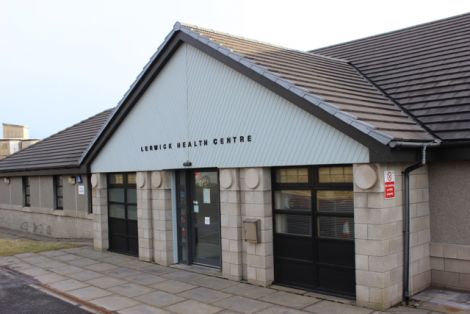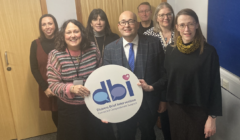Health / Expansion of Ask My GP service among health and social care plan priorities
EXTENDING the Ask My GP service across health centres in Shetland, developing support for people with ‘long Covid’ and bolstering the mental health service are three of many strands included in a new health and care plan for the coming year.
The latest remobilisation plan for the recovery of health and care services in Shetland from the Covid pandemic went in front of members of the health board and integration joint board last week.
The plan, which needs to be submitted to the Scottish Government, is the third of its type so far and it covers the period between April 2021 and March next year.
It lays out some of the priorities for health and care services in Shetland as they recover from the Covid pandemic.
Key areas include how to build and retain resilience, minimise the impact of Covid-19 and embed innovation.
There is a desire to roll out the popular Ask My GP service recently introduced at Lerwick Health Centre to Levenwick, Scalloway and Brae.
It allows patients to message health professionals from their phone about issues rather than attend appointments.
The platform helps point patients in the right clinical direction, through a sort of triage system, and speeds up the process.
Meanwhile there is a mention of ‘long Covid’ – the long-term, debilitating effects from coronavirus that some people experience.
The plan aims for the “development and implementation of pathways of support for people with ‘long Covid-19’, recognising that it is a multi-system disease”.
There is also a focus on recruiting a mental health officer and a mental health occupational therapist to “respond to increased crisis work and help to support the rights of individuals with mental health issues”.
Supplementary staffing to support access to the child and adolescent mental health service is also mentioned.
There is also an aim to “work with partners to identify employment opportunities for people on stable methadone programmes”, as well as expand home blood pressure and cardiac monitoring.
Become a member of Shetland News
As well as new initiatives, there is a key focus on continuing and maintaining the work already ongoing across health and social care.
At a meeting of Shetland health and social care partnership councillor Robbie McGregor said one concern he had was the mental health and wellbeing of staff.
“I note that funding is going to be available for this,” he said.
“There are other resources other than financial ones – are we happy that we have the resources in place to remobilise properly?
“I have great concern about the pressure that all staff have been under over the last few months.
“Remobilisation is a great idea, but I would like to think that we have in place the finance which is important, but more importantly the people resources.”
Public health principal Elizabeth Robinson said that preparations for a workforce development plan, requested by the government, are already underway.
The said the majority of funding needed will be for staff.
Carers’ representative Jim Guyan also called for mention of support for unpaid carers in the plan, and that the third sector is involved in mental health provision.
Robinson said in terms of mental health an overarching theme is how communities can look after one another.
“If people’s friends and families can support them, that’s the optimum that we should be looking at, and only pushing people into services when they’re actually needed, so we’re not medicalising mental health, or often assuming that it can be fixed with an intervention or medication,” she said.
Board chair councillor Emma Macdonald added that supporting people to support communities was imperative.
She also welcomed the range of initiatives in the plan.
But the North Mainland councillor added: “I think it’s going to be a challenge to ensure that we have the capacity to tackle everything.
“I think it’s recognising that we can’t do everything all at once as well.”
Health board member Shona Manson used the example of how people on Facebook fitness classes in Shetland at the moment are often opening up about their worries during the sessions.
“There’s a whole different thing that goes on with what people speak about and what they might disclose to their instructor, who normally they would just exercise in front of,” she said.
Manson said a “community bottom-up approach” is crucial.
“We’ve seen so much change as an entire community, as a world we’ve seen so much change over the last year,” Robinson added.
“I think we feel so strongly that we should hold onto the good changes. So the things that have changed and made a difference. Keep those and maintain that ability of the community to come together and support each other.
“It’s building on all of that. The more people that start behaving in a positive way, supporting each other, being kind, being helpful…I think it’s the direction that we should be moving in.”
Become a member of Shetland News
Shetland News is asking its readers to consider paying for membership to get additional perks:
- Removal of third-party ads;
- Bookmark posts to read later;
- Exclusive curated weekly newsletter;
- Hide membership messages;
- Comments open for discussion.
If you appreciate what we do and feel strongly about impartial local journalism, then please become a member of Shetland News by either making a single payment, or setting up a monthly, quarterly or yearly subscription.















































































